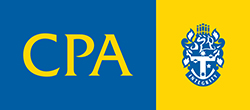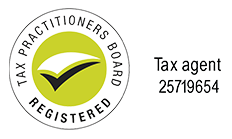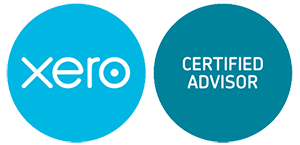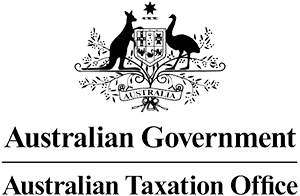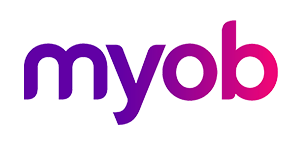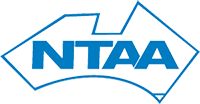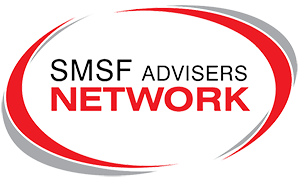Thinking About Self-Managed Super?
Nine Key Issues to Consider:
- What it is Self-Managed Superannuation?
- Sole Purpose
- What are the benefits and potential pitfalls?
- How does a SMSF work?
- Who should be trustee of your fund?
- What are the two make-or-break questions?
- Who can guide your considerations?
- Creating an alliance with an expert.
- What do DBA Accountants do?
What is Self Managed Superannuation?
The title is almost self-explanatory: “Self Managed Superannuation” is where super fund members set up their own super fund and make their own investment decisions. This area of superannuation is governed by the Superannuation Industry Supervision Act, “SIS” for short. The appointed regulator, whose task it is to ensure small (up to four members) self-managed superannuation funds (“SMSFs”) comply with the law, is the Australian Taxation Office.
A SMSF is a trust that is governed by its trust deed. Decisions are made on behalf of the fund by the trustees, who are also the members of the fund. The Trustee is responsible for managing and administering the fund for the sole purpose (see below) of providing retirement benefits for members. In particular:
- investing the fund’s assets in accordance with member instructions and in line with the fund’s investment strategy;
- taking out insurance policies as instructed by members;
- ensuring fund assets are protected, for instance by being stored and insured appropriately;
- determining and paying benefits; and
- ensuring appropriate records, accounts and reports are completed for the fund.
The trustee carries out these responsibilities with the help of their various advisors. Typically, DBA Accountants undertakes 3 and 4. DBA does not advise on investments or insurances except in a very general way but we assist our clients by acting as questioner, interpreter and facilitator, and sometimes, as introducer to an appropriate specialist.
Sole Purpose
The sole purpose of a superannuation fund is to provide retirement benefits for its members. This is one of the most important points for SMSF trustees to recognise. If the regulator (the ATO) finds that a fund has failed the “Sole Purpose test” it may declare the fund to be “non-compliant” with SIS. The potential consequences are severe. For instance:
- Tax of 45% of the fund’s assets as at the date the fund became non-compliant could be imposed. This would roughly halve the value of the fund. Fund income could be taxed at 45% from then on. The intention is to punish the fund members and encourage them to mend their ways or close their self-managed fund.
- The regulator could order that the fund be wound up and any remaining assets transferred to a “public offer” fund.
- The trustees could be banned from acting as trustee of a super fund.
- The trustees could be fined or jailed.
The ATO audit leading to the non-compliant decision will be very expensive in fees and in emotion.
What are the Benefits and Potential Pitfalls?
Superannuation and the successful operation of a super fund is a complex area involving superannuation law, corporations’ law, tax law, administration and investment expertise. The legal and taxation frameworks within which superannuation funds operate and the financial markets within which they invest, are constantly changing. Therefore, fund members who wish to take control of their own superannuation investments need to obtain good advice on both the investment of their money and the administration of their SMSF.
Also, the fund and its operation need to fit into the plan for your estate, its accumulation and eventual disposal. Your intentions and your family situation will change over time and your super fund needs to be considered. For instance, there are different outcomes for different beneficiaries of your member balance in the event of your death.
The Main Benefits of Self-Managed Super
- Allows fund members to take control of the investment of their own superannuation monies. Investment is allowed in a wide range of assets.
- Control of investing can be exercised within the legal guidelines for superannuation, to benefit the business activity of the members and to protect assets from creditors.
- Individuals or groups are able to have their own super fund.
- Upon retirement, the members are able to take their benefits from the fund in the form of cash or annuities/pensions, or, if taking a lump sum, by way of assets transferred directly from the fund.
- A personal fund is totally portable with changing employment.
- The cost of managing a SMSF is determined by the work required but the fees charged by managed funds are based on a percentage of contributions, plus a percentage of funds under management, plus a percentage of earnings. These percentage fees rise continually as the amount of money in the fund increases, whether or not the fund manager is successful or is required to do more work. A SMSF is worth considering at approximately $200,000 of monies invested, as at this level it can be more cost-effective than a managed fund.
- There are significant tax concessions for contributions to super and for the earnings of super funds, both for income and for capital gains.
Potential Pitfalls
- A small SMSF will hold a limited range of investments and is therefore, vulnerable to fluctuations in the values of those assets. Larger funds are able to diversify their portfolios and so reduce their exposure to volatility in any particular asset or class of assets.
- Some asset classes, although allowed to be held in a SMSF, create trouble and expense that could be avoided by investing in more “main stream” assets.
- A small fund typically has access only to the legal, financial and investment expertise of its members and one or two professional advisers.
- Administration headaches and expense can be created by poor record keeping by trustees.
Poor record keeping and inappropriate use of super fund monies can lead to significant penalties – fines and jail time for trustees.
How does a SMSF Work?
The SIS Act requires that members of a fund are also the trustees of the fund or are the directors of the trustee company, if the trustee is a company. DBA Accountants standard set-up of a self-managed super fund includes a pty ltd company as trustee.
The members, as trustees or directors of the trustee company, administer the fund with advice from DBA Accountants (on matters of tax and administration) and make investments with advice from their investment advisors.
The fund receives contributions from members and their employers. Those contributions are invested according to the investment strategy of the fund, as decided by the trustees.
Each year, the fund prepares financial statements and lodges an annual return with the ATO. The financial statements are audited before the return is lodged.
Who should be trustee of your fund?
All members of a SMSF must be trustees or directors of the trustee company. In a fund with only one member, the member can appoint another person to act as trustee with them, or they can be the sole director of the trustee company.
At DBA Accountants, our preference is for a pty ltd company to act as trustee.
Arguments in favour of a pty ltd as trustee:
- Jail. Penalty provisions in the governing legislation include imprisonment. Companies cannot be jailed.
- Financial penalties. Financial penalties can be applied to each trustee. With a corporate trustee, there is only one trustee to be penalised.
- Simplicity. If there are 4 members and 4 individual trustees, getting 4 individuals to sign a document can be inconvenient, so having two people sign as directors of a pty ltd is convenient.
- Security. Assets held in super funds are quarantined from attack by personal creditors, except if the creditors can prove the assets were moved into super to defeat their claim. An attacker will search for property in the name of the target person. Assets held by a trustee are held in the trustee’s name, not in the name of the super fund. An attacker searching for property owned by you will find assets in your name and the attack may proceed. You will defend and win but the point is, you will be attacked and will need to defend. If assets are held by “XYZ Superannuation Pty Ltd” an attack is a great deal less likely to eventuate.
- ATO scrutiny. The ATO has expressed concern and focuses a lot of audit resources on ensuring that super fund assets are held in the names of trustees, not in the names of members. There can be no confusion where there is a corporate trustee and all fund assets are in the company’s name.
- Borrowing. If a fund borrows money to acquire an asset, the bank will insist on a corporate trustee. Is your fund likely to be borrowing?
- Single member. A single member super fund may have a corporate trustee or two individuals. It will be difficult to find an individual who is willing to accept the personal liability for penalties and possible attacks from your family members after your death.
- Companies do not die. If the member dies, their place as a director and shareholder of the corporate trustee is taken by the Executor of their estate.
Arguments against having a pty ltd as trustee:
- Cost. The pty ltd will cost to establish and to administer but this is a minute amount in the context of the assets of your smsf.
What are the 2 Make-or-Break Questions?
A self-managed super fund may be right for you if you are able to answer YES to these two make-or-break questions.
Question 1: Do you have around $200,000 or more of superannuation assets or assets (eg cash, shares, real estate) that could be transferred into superannuation?
If YES, you may have enough to make the fund cost-effective, as opposed to leaving the money with a fund manager.
Question 2: As trustee of your own SMSF you will be entirely responsible for the investment decisions made, after considering the advice of your professional advisers. Can you sleep with this?
If YES, a self-managed super fund may be right for you.
If you were able to answer YES to the two make-or-break questions, a self-managed fund may be right for you. Could be…
Who can Guide you in your Considerations?
If you answered YES to the 2 make-or-break questions, it could be that a SMSF is right for you. However, the wise and eventually wealthy person seeks counsel from knowledgeable advisers before making their own choice. You should seek out an independent professional who is approachable, who can answer your questions in a way you understand and can guide you to a fully informed decision, then help you to implement your decision.
DBA Accountants are very experienced and passionate about helping you and your SMSF succeed. Contact us to help you.
(Here, “independent” means they provide advice and charge their fee, they do not set out to sell you a collection of financial products from which they earn sales commissions.)
Create an Alliance with an Expert
DBA Accountants are experts in the establishment administration and client support of SMSFs… it is what we do. You could ally yourself with us.
Our internal systems and processes help us deliver consistently high quality work and advice to our clients. The systems and processes we install as we establish your SMSF and the guidance we provide will help you stay comfortably within the rules. You will sleep well at night.
We maintain our own alliances with financial planners, insurance agents, lawyers and technical experts. We use our allies for the benefit of our clients. You will be allied to them through your alliance to us.
Our mission statement is: To help our client increase their wealth. In the pursuit of our mission, we will do anything in our power for our clients that is legal, moral and ethical.
To find out more, contact DBA Accountants and arrange to have a preliminary talk with one of our Team Members.
What do DBA Accountants do?
We make SMSF understandable, safe and (relatively) simple. What we do…
Provide impartial and unbiased advice on the family, business, taxation, estate planning and administrative aspects of an SMSF in the context of your wealth-building plans and estate planning, ensuring the superannuation strategy fits in with your overall strategy.
Guide you towards the best choice for you and your family and help you implement your decision. If your decision is to establish a self-managed fund, we:
- Attend to everything to do with the actual establishment of the fund, all initial documentation including applications and lodgements with the regulator, search of the lost super register, opening bank accounts and assistance with transferring monies from existing super funds to your new fund.
- Attend to record keeping and statutory reporting, and arranging the audit of the fund. (We do not audit your fund, as there is a clear conflict of interest in auditing our own work).
- Cooperate with you and with your other advisers in establishing and implementing investment and insurance strategies.
- Answer all your questions fully and honestly.
- Keep you informed of legal and taxation changes that might affect you and your fund.
To assist our clients, we will do anything in our power that is legal, moral and ethical. In doing this, we are conscious of the cost of our work but we are always trying to do the best job, never a cheap job.

